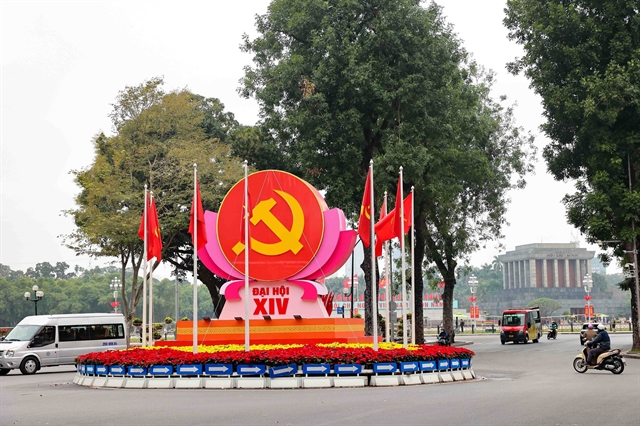 Life & Style
Life & Style

It is said he was working on his 10th symphony, but it's now whether the work has been finished. Nguyễn Văn Nam, Việt Nam’s top classical composer, who has left behind nine symphonic works, all dedicated to his country, died on May 17.

|
| Nguyễn Văn Nam |
HCM CITY — It is said he was working on his 10th symphony, but it's now whether the work has been finished. Nguyễn Văn Nam, Việt Nam’s top classical composer, who has left behind nine symphonic works, all dedicated to his country, died on May 17.
His last and most grandiose symphony No. 9 was written in five years and premiered here in HCM City on September 27, 2013, under the baton of Singaporean conductor Adrian Tan Chee Kang and the Saigon Philharmonic Orchestra.
Adrian Tan, who said he was touched when the maestro told him he understood his music and Việt Nam well, wrote to Việt Nam News in a Facebook message: "Maestro Nguyễn Văn Nam was a great composer who loved his country and had a big heart. His music is full of love for Việt Nam, and he was also a great teacher who passed on his passion to a new generation of young composers. I was very honoured to have premiered his 9th Symphony with Saigon Philharmonic and continued to have a warm friendship with him afterwards."
“Farewell to you, a great talent that was much aspired upon at the Leningrad Conservatory,” Russian-trained violinist Bùi Công Thành commented on the maestro's Facebook account, where his wife posted the announcement.
Nguyễn Văn Nam authored nine symphonies, the most of any other Vietnamese classical composers. When he was alive, he used to say that symphonic works are sophisticated and difficult to write, but it’s the best form to convey the deep feelings and sophistication of the human mind, according to his students.
In the world of classical music, it's a popular belief on the so-called "the curse of the ninth", meaning the ninth symphony shall be the last one for a classical composer. Ludwig van Beethoven wrote nine symphonies, others include Schubert, Dvorak and Gustav Mahler, who died in the middle of writing his tenth symphony.
Nam was born on July 14 in 1932 in southern Tiền Giang Province, which was at the time Cochinchina under the French Indochina territory. Joining the revolutionary activities in 1947, when he was only 11 years old, he started out in the Mỹ Tho Propaganda committee. In 1948, he went to school in the Plain of Reeds, then joined the military in 1949 and worked in the Military Music Troupe of Zone 8. He later moved to work in the Music Troupe of the Plain of Reeds front.
In 1954, when the Paris Peace Agreement was signed and divided Việt Nam into two parts, Nguyễn Văn Nam moved to the north and worked until 1959. He then left the military and worked in the Ministry of Culture, signed up to study composition at the newly founded Việt Nam Music School, now the country’s top music school known as the Việt Nam Academy of Music (VNAM).
He graduated with distinction and in 1966 was sent for further studies at the then Soviet Union’s Leningrad Conservatory, which is St. Petersburg State Conservatory today. He graduated in 1973 and went back to Việt Nam to work. In 1974, he was sent back to Leningrad for Doctoral studies in two subjects: composition and music theory. Having completed his studies in 1979, he worked at the autonomous Kabardino-Balkaria republic in the then Soviet Union and later became a member of the Soviet Union’s Association of Composers.
During his long years studying in the Soviet Union, he fell in love with one of his classmates, Tamara Blaeeva. They visited Việt Nam in 1988 and planned to settle in the country, but his wife died suddenly in 1990.
In 1991, when their daughter was only 8 years old, his mother fell seriously ill, so he entrusted his daughter to her mother’s relatives and moved back to Việt Nam. Heartbroken after his mother died, Nguyễn Văn Nam decided to stay.
He started teaching composition the same year at the HCMC Conservatory, training composition writers and musical critics.
For his continuous dedication and hard work, he was officially bestowed the Professor title in 2015, at 84 years of age, but bureaucratic administrative procedures never allowed him to be a tenured professor. He was a visiting scholar all the time with limited benefits.
He was awarded many prizes for his orchestral works. He was awarded many honorariums and accolades including Victory Medal, Gold Medal at the National Music Festival for his orchestral work, The Legend of Mother, and a lifetime medal for The Cause of Việt Nam’s Music among others.
But life spared him happiness in the later years of his life. In 2004, he was interviewed by writer Huỳnh Mẫn Chi and later they got married. He is survived by his wife, two daughters and a son. — VNS
Nguyễn Văn Nam’s symphonies:
Symphony No. 1: To the Brave Southern Fellow countrymen (1972)
Symphony No. 2: When Drink Water, Reminiscing its Source (1974, dedicating to the People’s Army of Việt Nam on its 30th anniversary)
Symphony No. 3: To the Orphans of War (1975)
Symphony No. 4: Symphony Ađưks (1986)
Symphony No. 5: Mother Việt Nam (1994)
Symphony No. 6: 300 years of Sài Gòn (1998)
Symphony No. 7: The Tale of Kiều (2000)
Symphony No. 8: My country, my homeland (2003)
Symphony No. 9: Raging Nine-Dragon River (2012)




